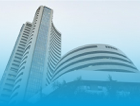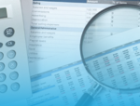Beta
Beta is a measure of risk. To understand this, first let’s understand two types of risk faced by a company. Let’s take the example of Maruti Suzuki. Sometime back, it had a labor strike in its Manesar plant. This hampered production and tarnished Maruti’s image. Due to this, investors started moving away from Maruti’s stock and it experienced sharp fall. This was a Maruti specific risk, as only the stock price of Maruti was impacted, not the other stocks trading at the exchange. This type of company specific risk faced by a stock is called unsystematic risk. In this case, if I had put all my money in Maruti’s stock, definitely I would have been hospitalized. But if Maruti was a small part of my portfolio, then I might have suffered a small loss. That’s why we say that company specific risk can be avoided by investing in various unrelated stocks, i.e. having a diversified portfolio.
The second type of risk faced by a company is called Market Risk. Suppose there is a political party called CNG headed by a very weak politician. The party is generally viewed as non-progressive and against modern reforms, required to bring in rapid economic growth. If such a party gets elected, then obviously prices of all the stocks will go down. This is not a company specific risk, but the general market risk. Irrespective of the fact that whether I have invested my money just in Maruti or have a big portfolio of unrelated stock, I would have experienced a significant loss. That is why we say it’s not possible to avoid market risk by investing in a portfolio of unrelated stocks, as all will be impacted by market events.
Beta is a measure of market risk. If the beta of a stock is more than 1, it means stock moves along with market in the same direction and is more volatile than the market. So if market is expected to increase by 10%, a stock with a beta of more than 1 is expected to generate more returns than 10%. Generally, in a bull market we invest in high beta stocks, to enhance returns. If the beta is less than 1, it means that stock is less volatile and not related to the market. These stocks are best bet in a bear market, to protect against sharp price drops.








Add a comment